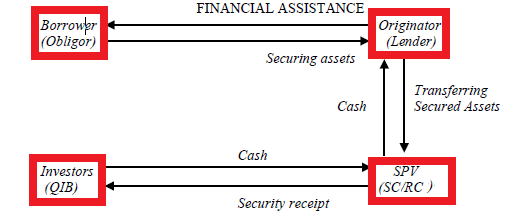The Securitisation and Reconstruction of Financial Assets and Enforcement of Security Interest Act, 2002 or SARFAESI Act, 2002 allows banks and financial institutions to auction properties (residential and commercial) when borrowers fail to repay their loans. The Act aims at speedy recovery of defaulting loans and to reduce the mounting levels of Non-performing Assets of banks and financial institutions.
… Read the restAs stated in the Act, it has “enabled banks and FIs to realise long-term assets, manage problems of liquidity, asset-liability mismatches and improve recovery by taking possession of securities, sell them and reduce non performing assets (NPAs) by adopting measures for recovery or reconstruction.”

